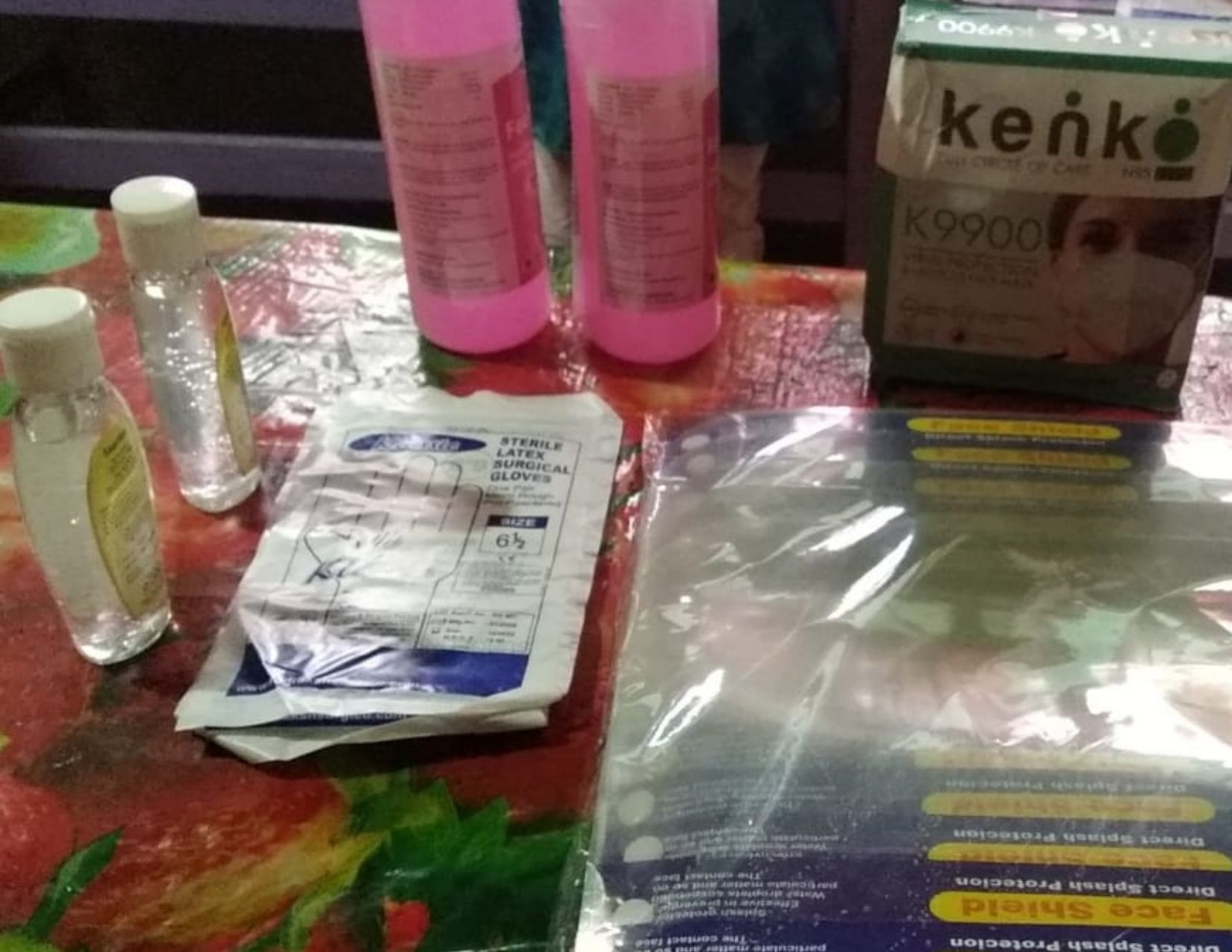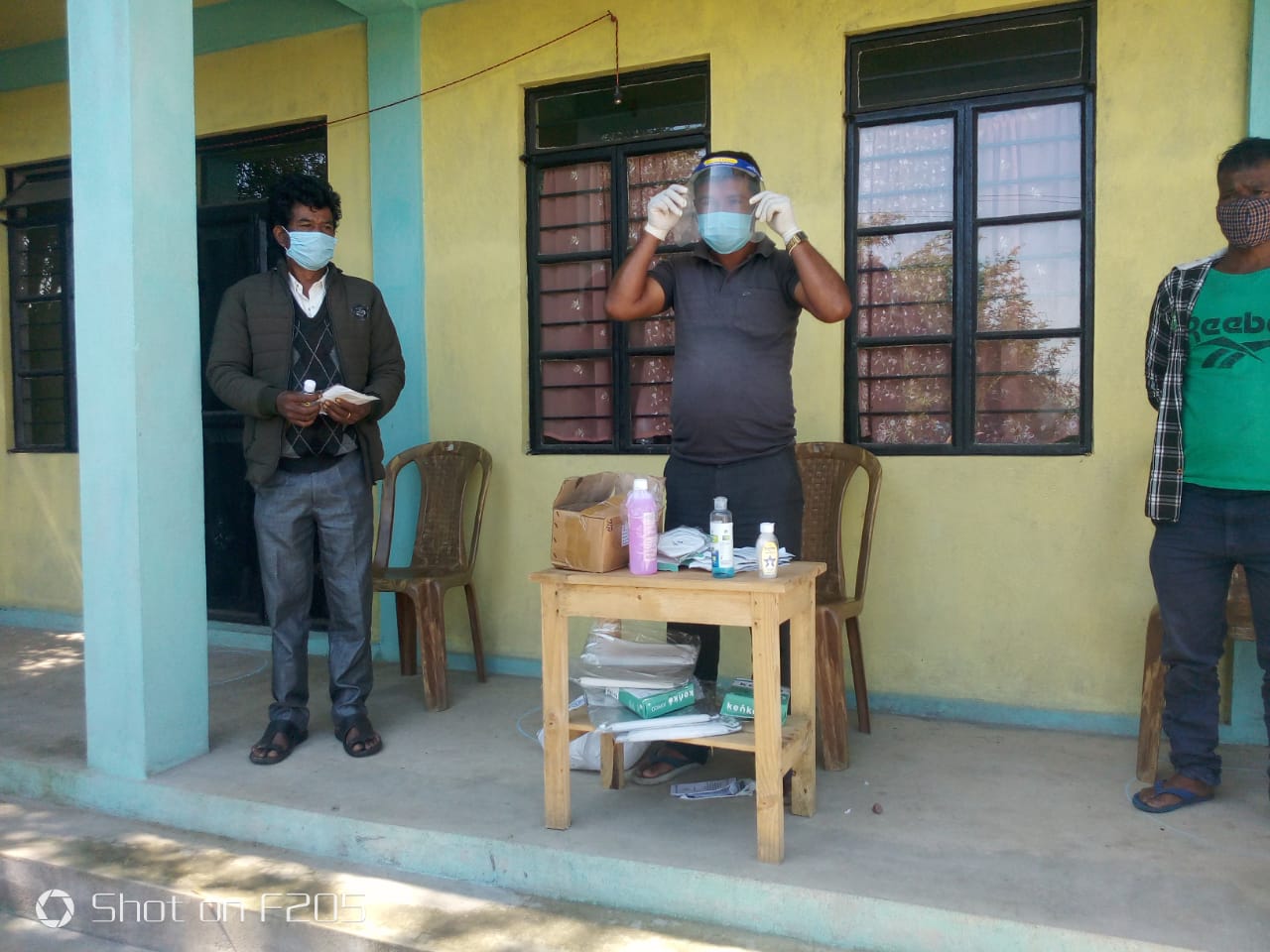The second wave of COVID-19 pandemic has even attacked villages in the far corner of the State. The virus has not even spared the villages, which are within the project area of NESFAS. The situation has compelled NESFAS to go beyond the mandate of the project and work with the 130 villages in Meghalaya and Nagaland and embark on the work of suppressing the spread of the virus.
NESFAS was shocked that some of the villages where it is working were badly hit by the pandemic and the Ri-Bhoi district was found to be affected the most in which Pahambir has 2, Mawiong 1, Khweng 73 and one fatality and Liarsluid with 1 positive case. This was followed by villages like Jongksha and Mawhiang in East Khasi Hills district with 79 and 5 positive cases respectively.
This situation compelled NESFAS and its partner organisations ; SURE, SSC and NEN, to try to understand how prepared the communities are in combating the second wave of the COVID-19 pandemic. In this connection, NESFAS organised four zoom meetings with the communities, which belong to the four clusters of villages in the project areas. In Meghalaya altogether 51 villages joined the zoom meeting, which was organised with the sole purpose of empowering communities in their fight against the pandemic.
The first zoom was organised for villages under Sohra and Mawkynrew cluster on May 15, meeting for Mawsynram, West Khasi Hills and Ri-Bhoi clusters were organised on May 17. On May 19, the meeting was organised for villages in Jañtia Hills in collaboration with Society for Urban and Rural Empowerment (SURE) and the East Khasi Hills villages with Social Service Committee (SSC) and the last meeting was organised for the villages in Garo Hills and Nagaland in partnership with North East Network, Nagaland.
The meeting was organised to share and discuss the strategic plan developed to combat the COVID-19 pandemic with the community members. The headmen of the villages, the ASHAs, the Anganwadis, COVID-19 committees of the respective villages, the community facilitators and the staff of the organisations joined the zoom meeting. Medical officers from three PHC namely Dr. Subharata Das of Jatah PHC, Dr. H. Rymbai Laitryngew and Dr. Crucybeljune Kharbani of Myriaw PHC also joined in the meeting and helped make people aware of the situation and the importance of getting vaccinated. Others who joined the meetings were H.H.Mohrmen, Nestar Kharmawphlang, Fr Bernard Laloo of SSC, Pasqualina Lamare of SURE, Akole and Vila of NEN Nagaland.
It was learned that many villages did not even have a quarantine centre and in one case this is the reason that the numbers of COVID-19 positive cases increased from one to 72 cases. The major challenge the community is unable to start quarantine centre is the lack of water supply in the community hall and their inability to feed the patients. It was also learned that many of the volunteers engaged by the dorbar shnong even in the village where there are positive cases do not even have proper protective gear like face shield, masks, gloves, etc. These are the frontline workers in the villages and the unavailability of the necessary gear puts them at great risk, said the headman of Khweng village in Ri-Bhoi.
The immediate impact of the orientation programme was that 25 villages have activated the community quarantine centres. To ensure the safety of the village, 4 villages have immediately placed returnees in the quarantine centres. The villages include Umsawwar (4 returnees), Umwang Nongbah (1 returnee), Umsawnoldhi (1 returnee), Madanrtiang (2 returnees). Nongtraw village took strict action against two persons who returned to the village without informing the Village Council and put them under quarantine.
NESFAS in collaboration with Ri-Bhoi CHC was also able to provide special assistance to facilitate the starting of 3 quarantine centres in Khweng and Liarsluid. Requirements of the centres like blanket, mattress, bed, pillow, hand sanitizers, face shields, hand gloves, N95 masks were provided to the community with the generous donation of Kong Anita Swer. NESFAS was also able to provide 10 portable oxygen cylinders for Jatah PHC (3nos), Swer PHC (3 nos) and Bhoirymbong CHC (4 nos) and the NGO was also able to network with Gurudwara, Sri Guru Singh Sabha, Shillong for oxygen langar support to the communities if needed.
It was also reported that 13 positive persons in the project area were fully recovered from COVID-19. The numbers are as follows, Nongwah (1 person), Selbagre (3 persons), Gonol Sangma (5 persons), Madanrtiang (1 person), Liarsluid (1person), Khliehumstem (1 person) and Marngar (1 person). But unfortunately, it was found that people are still reluctant in taking the vaccination. Hence, it was agreed that there is a need for an intensive vaccination campaign at the village level to convince the people to take the vaccination.
Mawhiang village deserves special mention because the community has locally developed a plan to suppress the transmission. This includes the isolation of 5 positive persons and their families. The village council has allotted a special washing place for positive patients and their respective families. Since it is rice sowing season, the dorbar shnong ensured physical distancing of people who are engaged in farming too. Families with COVID-19 positive were not allowed to hire labour. The situation is under control now. To suppress transmission villages like Nongwah, Marngar, Madanrtiang have taken a more practical and proactive step.
An inspiring story is also that of Kong Redian Syiem, a custodian farmer from Khweng village, who after she had developed COVI-19 symptoms, immediately voluntarily isolated herself from the family. She had done this even before she was tested and this has prevented the spread of the virus within the family. NESFAS is planning to support communities by providing 360 volunteers in different villages with protective gear.
Apart from the distressing pandemic news, through the Participatory Guarantee System (PGS) group, the NGO promoted and strengthen the Farm on Wheels initiative to sell chemical-free produce to the nearby villages during the lockdown period. Prominent of these are Nongwah, Mawhiang in the East Khasi Hills and Mulum in the West Jañtia hills district.
 Translate
Translate






